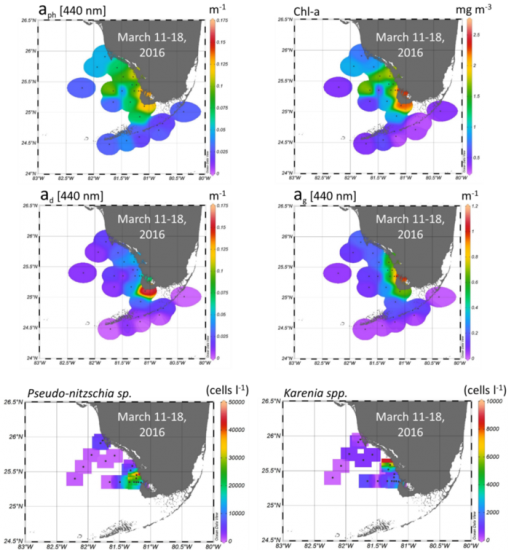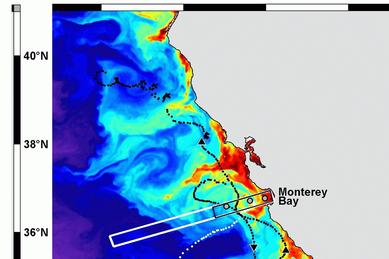“Sanctuaries MBON” Receives NOPP 2016 Excellence in Partnering Award
The National Oceanographic Partnership Program is pleased to announce the 2016 Excellence in Partnering award recipient: National Marine Sanctuaries as Sentinel Sites for a Demonstration Marine Biodiversity Observation Network (MBON). Led by Dr. Frank Muller-Karger with the University of South Florida, the Sanctuaries MBON project seeks to provide near real-time information on the status and trends of life in the sea. The project is designed to monitor changes in marine biodiversity in two US National Marine Sanctuaries — Florida Keys and Monterey Bay, working jointly with the NOAA Office of National Marine Sanctuaries and the U.S. Integrated Ocean Observing System (IOOS).

- Integrate and synthesize information from ongoing monitoring programs coordinated by the U.S. IOOS;
- Define the minimum set of observations required for implementing a practical, useful MBON;
- Develop technology for biodiversity assessments through emerging environmental DNA (eDNA) molecular methods and autonomous sample collection;
- Develop new methods for the detection and tracking of biogeographic seascapes using advanced satellite remote sensing methods;
- Integrate biodiversity measurements in a relational database that links to national and international databases and that informs NOAA’s emergency response system;
- Establish a protocol for MBON information to dynamically update Sanctuary status and trends reports; and
- Understand the linkages between marine biodiversity and the social-economic context of a region.

The Sanctuaries MBON team is leading coordination and leveraging resources with the two other MBON demonstrations (Santa Barbara Channel BON and Arctic MBON) towards development of a truly national MBON. They are also contributing to development of the global MBON through the Group on Earth Observations Biodiversity Observation Network (GEO BON) and the Global Ocean Observing System (GOOS).
The MBON demonstration projects are 5-year efforts, with work continuing until summer 2019.
Want to know more about the MBON project? Check out their website!


